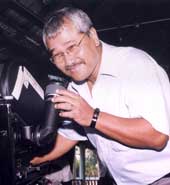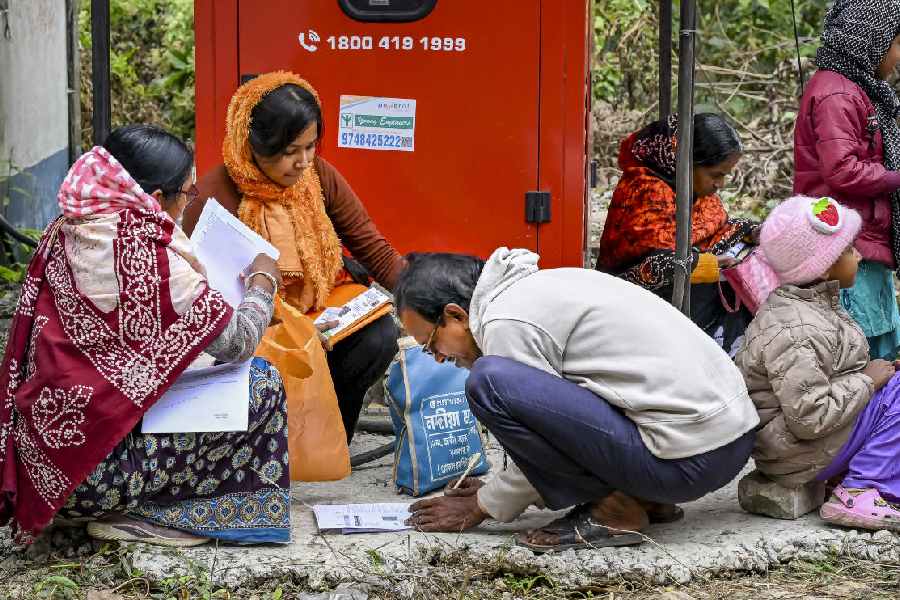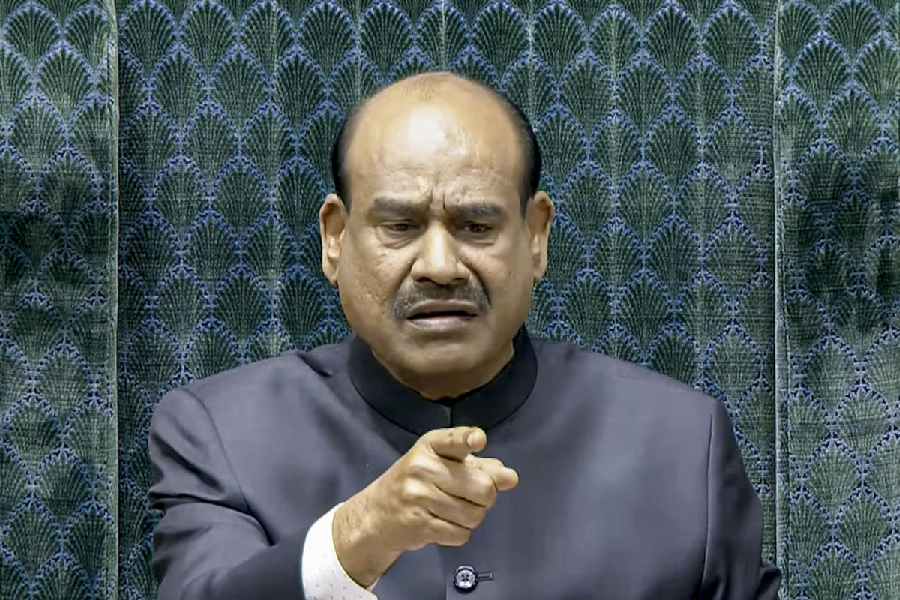 |
 |
| Filmmaker Jahnu Barua’s (top) attempt to mediate with the Ulfa and stop militant attacks (as in Tinsukia in picture above) is commendable. Pictures by UB Photos and S.H. Patgiri |
The Ulfa is far from being vanquished. This is a reality that the forces fighting terrorism in Assam and the Northeast need to acknowledge. After the Bhutan exercise, Ulfa was temporarily paralysed. Its cadres were scattered helter-skelter as they ran for cover. But the leadership suffered no major setback. All of Ulfa’s top leaders are safely ensconced in Bangladesh. As long as there is a safe haven across the border, terrorism will continue to receive its nourishment.
Extremism is a disease that calls for administrative action regardless of which party is in power. Contrary to the accepted creed of the security forces, merely upgrading intelligence networks and induction of more men and sophisticated weapons may not achieve the objective of crushing terrorism. (One is using the word “terrorism” here after careful consideration. Labels such as “insurgency” are mere euphemisms). What is of extreme importance is that the political leadership should work out a series of well-thought out reforms to make terrorism irrelevant. Another strategy is to attack the source of strength of the extremists.
Like every other terrorist organisation, Ulfa draws its life-blood from two crucial areas. One is an unquestioning public support. The other is a well-oiled financial base. Take away the two and terrorism would have no legs to stand on. Others, like logistical support, manpower, training and so on, are peripheral needs. The Ulfa received tremendous response from the Assamese population during its infancy. Without that support Ulfa cadres would not have been able to operate freely within the state. They desperately need cover in order to operate their extortion racket. Sympathisers provide that crucial cover. Needless to say, terrorism often takes on the face of a socialist creed that could challenge existing power structures. The Naxalite movement emerged mainly as a challenge to the bourgeoisie. In this case, the political class and those who have symbiotic relations with them are construed to be the bourgeois. It is obvious then that those who have been deprived of basic needs from a system controlled by the bourgeoisie would be sympathetic to anything that promises a better future.
A rustic youth struggling to make ends meet is a potential tool for any terrorist organisation like the Ulfa. His family members become co-workers, providing a hideout to the rebels whenever necessary. If the problems of rural Assam, including those districts like Karbi Anglong, North Cachar Hills and Bongaigoan, were addressed with singular devotion, Assam would not be the hotbed of militancy that it is today. Unfortunately, those at the helm of affairs are reluctant to admit this fact. Worse is the politicisation of the entire Ulfa as just one of the outfits that the government has to deal with. Bodo militants are in a temporary withdrawal mode. They have the propensity to rise from the ashes any time.
What is urgently required at this point is for the entire legislature to sit together and work out strategies for short term and long term solutions to the thorny issue of terrorism. This is no time for any one political party to castigate the other. A human tragedy such as the recent one at Paradise Cinema should in no case be used as a political tool. Those who politicise such issues only show their unconcern for human lives. For them everything is reduced to politics and political one-upmanship. Perhaps this is why terrorism has survived in Assam.
The Ulfa’s latest offensive of re-creating terror is actually a gameplan to re-establish its credentials in the public mind. The message it wants to send out is loud and clear. The outfit is still capable of resurrecting itself and wreaking vengeance on those who do not toe its line. It is no surprise, therefore, that the Ulfa has geared up its extortion apparatus, and is now training its guns on the most vulnerable section of Assam’s industrial sector — the tea industry. Already beleaguered by the competition from the global market, Assam’s tea industry is moving very sluggishly. This is hardly the time to penalise the sector. If Ulfa truly cares about the economy of Assam on which hinges the lives of thousands of people, it would hardly target any industry, least of all one that is already limping. This action belies the Ulfa’s claims to fight for the rights of the marginalised. The outfit is only beating a jingoistic drum. They fool no one.
Thankfully, a large section of the Assamese population has been able to unmask and demystify the Ulfa. The outfit is today seen for what they are — a bunch of opportunists making money by spreading terror. Bulk of the money goes to support the opulent lifestyles of its top leaders. One thing that the Ulfa is totally bankrupt of today is the people’s support. It has taken almost two decades for people to rationalise and get over the euphoria. Of course politicians have themselves played midwife to militancy. And the Ulfa had been blatantly partisan in supporting one party or the other during elections. Compounding the problems are the recent verbal altercations between Tarun Gogoi and the Opposition parties, which clearly expose the lack of sincerity of both sides in dealing with the issue at hand.
A calculated strategy to break the back of the Ulfa would be to plug its sources of income. As long as the outfit enjoys financial liberty it will also have the strength to re-group and restructure. Is the government of Assam serious enough to be able to come up with effective strategies? The governor of Assam had recently stated that militancy is now a thing of the past. This is what everyone wants. But there has not been a concerted effort on the part of all to address this problem in a holistic manner. People are cynical about the government’s moves. They need to see some sincerity in the government’s own conduct, less of rhetoric and more of focused action. Only then will people be inclined to work together with the government to usher in a climate of peace.
It is encouraging to note that filmmaker Jahnu Barua is trying to play the role of mediator. Indeed, all kinds of methods need to be employed in order to end the rule of terror. The state machinery, particularly its security forces, needs to work compatibly with the people and not estrange them as security forces are often wont to do. The state must be able to provide adequate security to potential victims of extortion. Above all, the state should be able to ensure a climate of security and certainty, both of which are crucial towards brining back normalcy to Assam and with it, economic resurgence. When people are tired of terrorism, it is usually only a matter of time before peace is restored. But it is also a fact that a proactive citizenry alone can fight the forces of terror.










